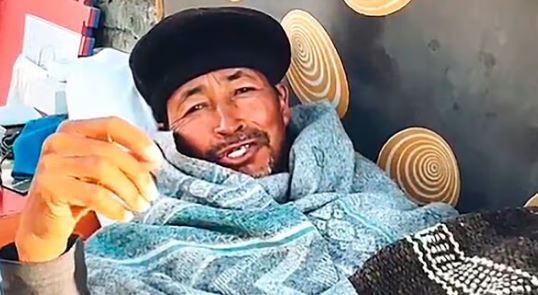The Union Territory of Ladakh carved out of the erstwhile state of Jammu & Kashmir in 2019, went to polls today. What makes the contest for the lone Lok Sabha seat in Ladakh, the country’s largest Parliamentary constituency in terms of area, significant is that the outcome of the election may be considered a referendum on the region’s demand for statehood and its inclusion under the Sixth Schedule of the Constitution.
Ladakh is divided into two regions – the Buddhist-majority Leh and the Shia Moslem-majority Kargil. For many years, the Buddhist community has been advocating for a distinct region for their people, while those in Kargil have expressed their desire to merge with the Moslemmajority region of Kashmir. In the wake of 5 August 2019 when Article 370 of the Constitution was abrogated, the people of Ladakh were initially happy because they considered it an escape from the step-motherly treatment they were receiving in undivided Jammu & Kashmir. They have long wanted to get either a separate state or UT status. However, the euphoria soon gave way to resentment and a year later, the districts of Kargil and Leh came together to create the Leh Apex Body and Kargil Democratic Alliance with the objective of addressing the issues concerning the people of the UT. They realised that now the UT was being remote-controlled from Delhi and the local inhabitants had no say in governance and decision-making. The two civil society groups have organised massive demonstrations in protest against the Union government over their demand for statehood. Their other demand is the enforcement of the Sixth Schedule, a Constitutional safeguard that preserves the rights of tribal communities to establish self-governing bodies for legislating on matters concerning land, healthcare, and farming among other things. It is pertinent to note that almost 97 per cent of Ladakh’s inhabitants belong to tribal groups.
The protests for statehood and inclusion under Sixth Schedule hogged international headlines in March this year when noted climate activist Sonam Wangchuk began a 21-day hunger strike in subzero temperatures. Thousands joined Wangchuk for the cause as they believed that autonomy and provision of Sixth Schedule are both crucial to protect the region’s fragile ecosystem and the interests of its people. Wangchuk has accused the BJP of going back on its promise of including the UT under the Sixth Schedule. The Himalayan region is highly vulnerable to climate change, putting its inhabitants at great risk. The shrinking glaciers result in water scarcity and more frequent floods, worsening the condition for locals. If proper measures are not taken, living conditions in these mountains will continue to deteriorate. These threats make the Sixth Schedule all the more crucial for Ladakh.
Apart from these issues, pasture lands, used for grazing by the local nomadic tribes, being taken over by China is another major concern. Cases of Chinese troops entering Ladakh and preventing residents from allowing their livestock to graze have exacerbated tensions. In January this year, a confrontation occurred between a group of local herders and the People’s Liberation Army (PLA) soldiers when the locals were prohibited from taking their cattle to their customary grazing areas near the Line of Actual Control (LAC). The location of Ladakh holds great geostrategic significance for India as it shares borders with both China and Pakistan, and both had strongly opposed India’s decision to revoke Article 370. This problem has become even more complex because the Government of India simply refuses to accept ground realities and hence is unwilling to recognize the fact that China has indeed occupied massive tracts of land in Ladakh in the recent past.
Whatever may be the results of the polls, one must commend the spirited people of Ladakh who have come together for a cause putting aside their differences of region and religion — a lesson for other parts of the country where easily getting divided on irrelevant issues is usually the norm.
